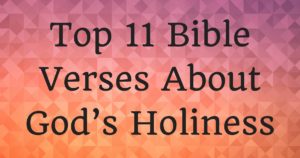In his sermon, Way of Holiness, Jonathan Edwards lists “reasons why none that are not holy can be in the way to heaven, and why those who never are so can never obtain the happiness thereof.” (p. 474, Kimnach)
Edwards’s fourth reason taught me much about the nature of sin and its affect on all of us. Take a moment and check this against your own understanding of sin and how you normally explain it to your congregants. If you’re like me, you will say something like, “Wow! My definition is a bit light!”
“The nature of sin necessarily implies misery. That soul that remains sinful must of a necessity of nature remain miserable, for it is impossible there should be any happiness where such a hateful thing as sin reigns and bears rule. Sin is the most cruel tyrant that ever ruled, seeks nothing but the misery of his subjects….Sin is a woeful confusion and dreadful disorder in the soul, whereby everything is put out of place…” (pp. 475-476, Kimnach)
The last part is extremely insightful. Unlike anything I’ve read in theologies.
This kind of analysis helps me whenever I try to communicate the meaning of sin. My definition or understanding of sin isn’t as robust as Edwards’s. What I’m learning from Edwards’s preaching is that he is working so hard to convince his listeners that they should avoid sin at all cost.
If your preaching portion for this coming Sunday contains explicit or implicit references to sin, maybe Edwards’s keen understanding may help you help your congregants. I know, as we do this our Lord will receive glory in the church and in Christ Jesus (Ephesians 3:21).
Randal











